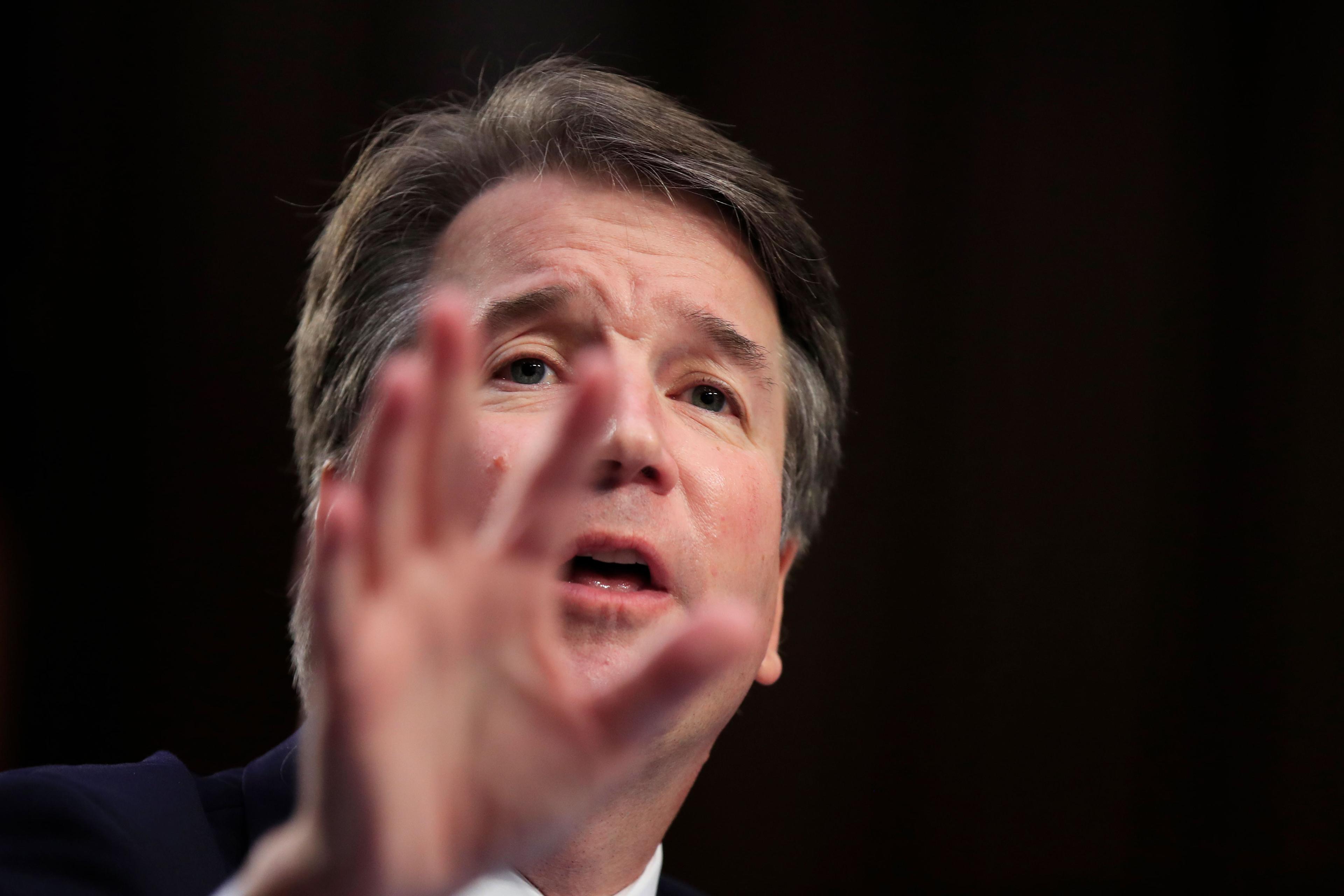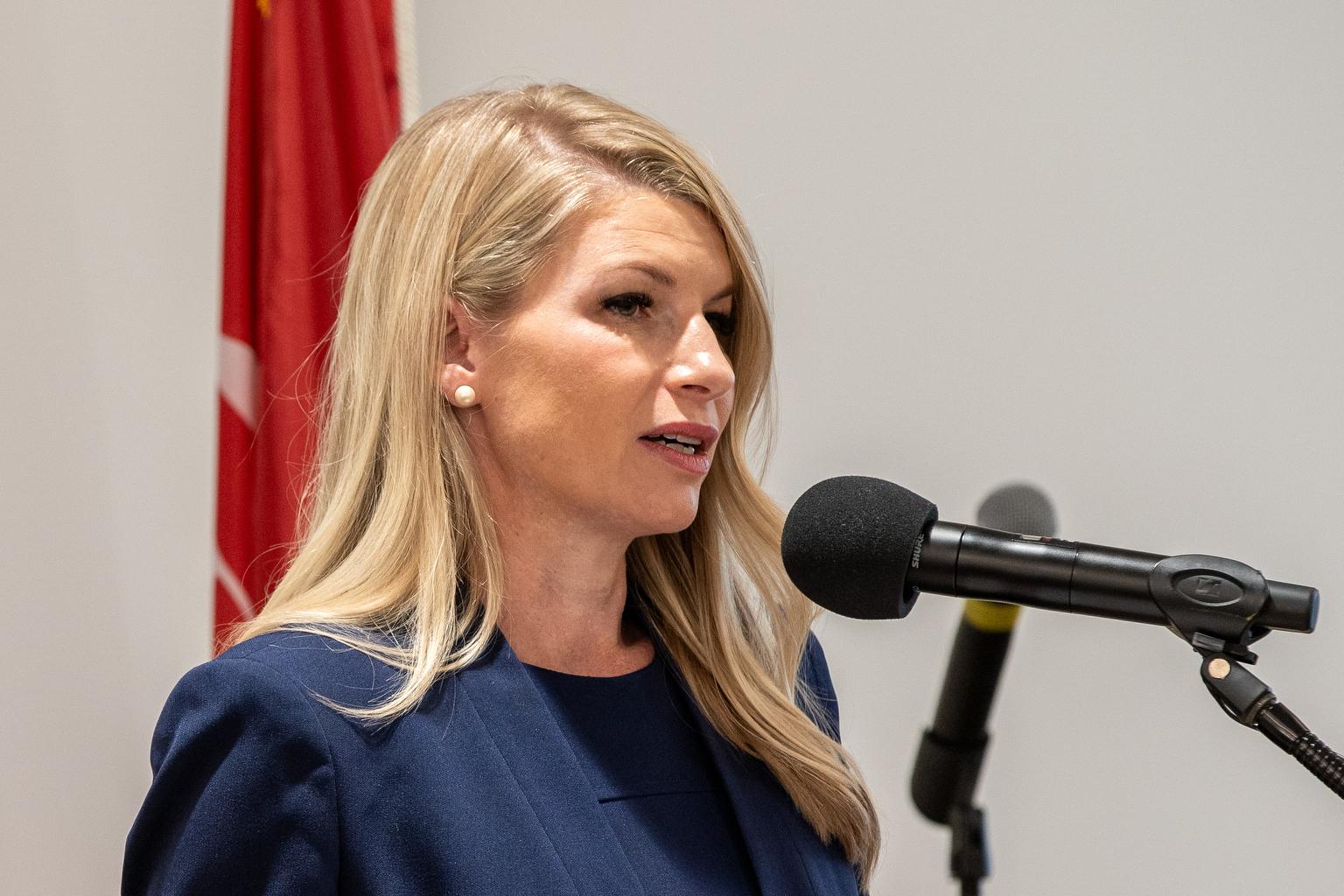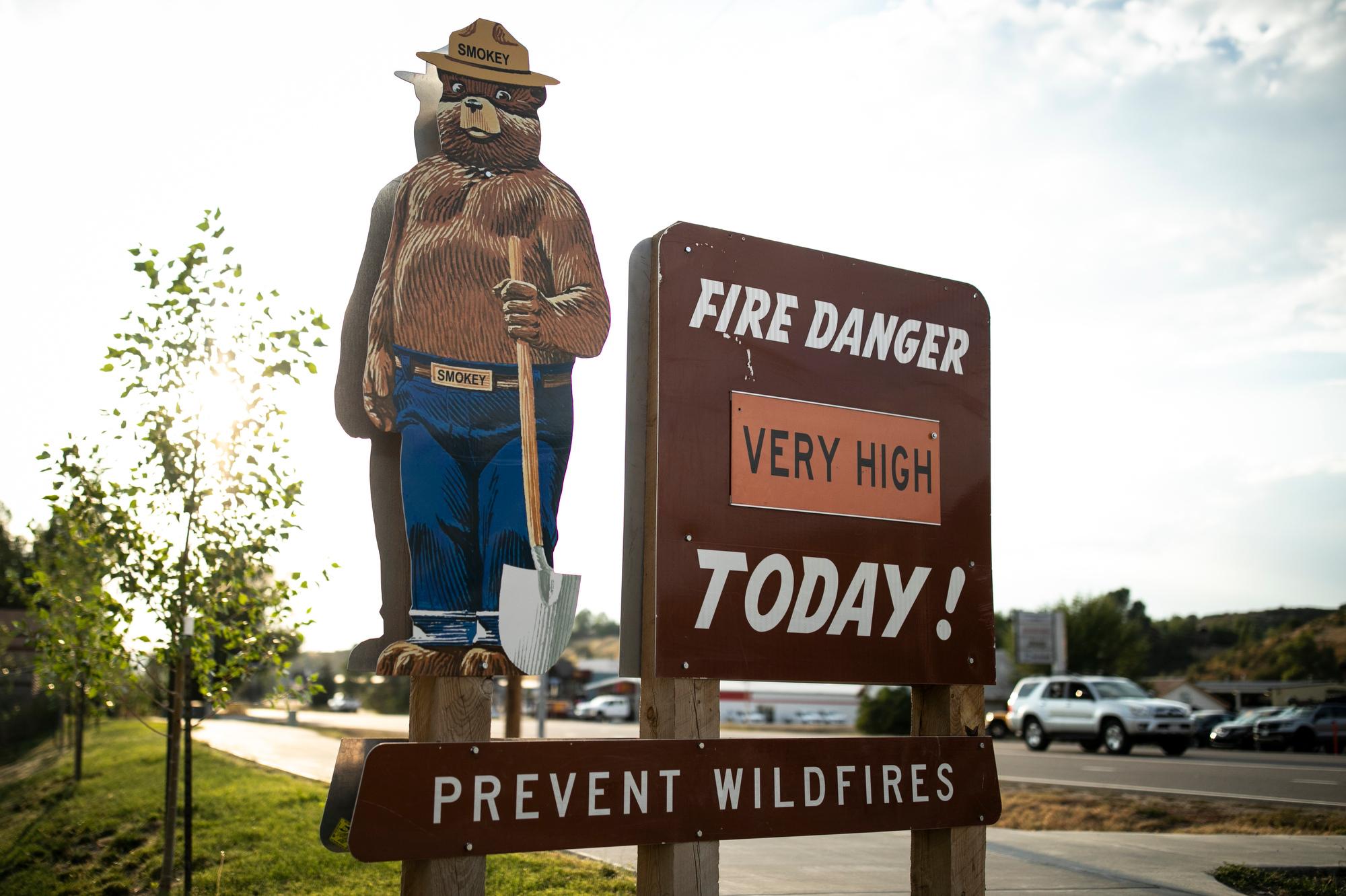

The bitterly polarized U.S. Senate narrowly confirmed Brett Kavanaugh on Saturday to join the Supreme Court, delivering an election-season triumph to President Donald Trump that could swing the court rightward for a generation after a battle that rubbed raw the country's cultural, gender and political divides.
The near party-line vote was 50-48, capping a fight that seized the national conversation after claims emerged that Kavanaugh had sexually assaulted women three decades ago — which he emphatically denied. Those claims magnified the clash from a routine Supreme Court struggle over judicial ideology into an angrier, more complex jumble of questions about victims' rights, the presumption of innocence and personal attacks on nominees.
Acrimonious to the end, the battle featured a climactic roll call that was interrupted several times by protesters in the Senate Gallery before Capitol Police removed them.
On Friday, Colorado's two senators, Republican Cory Gardner and Democrat Michael Bennet, hewed to each of their party's lines as Kavanaugh advanced to Saturday's full vote. That pattern held on Saturday, with Gardner voting in favor of Kavanaugh and Bennet voting against him.
The vote gave Trump his second appointee to the court, tilting it further to the right and pleasing conservative voters who might have revolted against GOP leaders had Kavanaugh's nomination flopped. Democrats hope that the roll call, exactly a month from elections in which House and Senate control are in play, will prompt infuriated women and liberals to stream to the polls to oust Republicans.
In final remarks just before the voting, Senate Republican leader Mitch McConnell of Kentucky said a vote for Kavanaugh was "a vote to end this brief, dark chapter in the Senate's history and turn the page toward a brighter tomorrow."
Democratic leader Chuck Schumer of New York looked ahead to November, appealing to voters beyond the Senate chamber: "Change must come from where change in America always begins: the ballot box."
Rep. Joe Manchin of West Virginia, confronting a tough re-election race next month in a state that Trump won in 2016 by a landslide, was the sole Democrat to vote against Kavanaugh. Every voting Republican backed the 53-year-old conservative judge.
Alaska's Lisa Murkowski, the only Republican to oppose the nominee, voted "present," offsetting the absence of Kavanaugh supporter Steve Daines of Montana, who was attending his daughter's wedding. That rare procedural maneuver left Kavanaugh with the same two-vote margin he'd have had if Murkowski and Daines had both voted.
It was the closest roll call to confirm a justice since 1881, when Stanley Matthews was approved by 24-23, according to Senate records.
Murkowski said Friday that Kavanaugh was "a good man" but his "appearance of impropriety has become unavoidable." Republicans hold only a 51-49 Senate majority and therefore had little support to spare.
The outcome, telegraphed Friday when the final undeclared senators revealed their views, was devoid of the shocks that had come almost daily since Christine Blasey Ford said last month that an inebriated Kavanaugh tried to rape her at a 1982 high school get-together.
Since then, the country watched agape at electric moments. These included the emergence of two other accusers; an unforgettable Senate Judiciary Committee hearing at which a composed Ford and a seething Kavanaugh told their diametrically opposed stories, and a truncated FBI investigation that the agency said showed no corroborating evidence and Democrats lambasted as a White House-shackled farce.
All the while, crowds of demonstrators — mostly Kavanaugh opponents — ricocheted around the Capitol's grounds and hallways, raising tensions, chanting slogans, interrupting lawmakers' debates, confronting senators and often getting arrested.
Trump weighed in Saturday morning on behalf of the man he nominated in July. "Big day for America!" he tweeted.
Democrats said Kavanaugh would push the court too far, including possible sympathetic rulings for Trump should the president encounter legal problems from the special counsel's investigations into Russian connections with his 2016 presidential campaign. And they said Kavanaugh's record and fuming testimony at a now-famous Senate Judiciary Committee hearing showed he lacked the fairness, temperament and even honesty to become a justice.
But the fight was defined by the sexual assault accusations. And it was fought against the backdrop of the #MeToo movement and Trump's unyielding support of his nominee and occasional mocking of Kavanaugh's accusers.
About 100 anti-Kavanaugh protesters climbed the Capitol's East Steps as the vote approached, pumping fists and waving signs. U.S. Capitol Police began arresting some of them. Hundreds of other demonstrators watched from behind barricades. Protesters have roamed Capitol Hill corridors and grounds daily, chanting, "November is coming," ''Vote them out" and "We believe survivors."
On Friday, in the moment that made clear Kavanaugh would prevail, Collins delivered a speech saying that Ford's Judiciary Committee telling of the alleged 1982 assault was "sincere, painful and compelling." But she also said the FBI had found no corroborating evidence from witnesses whose names Ford had provided.
"We must always remember that it is when passions are most inflamed that fairness is most in jeopardy," said Collins, perhaps the chamber's most moderate Republican.
Manchin used an emailed statement to announce his support for Kavanaugh moments after Collins finished talking. Manchin, the only Democrat supporting the nominee, faces a competitive re-election race next month in a state Trump carried in 2016 by 42 percentage points.
Manchin expressed empathy for sexual assault victims. But he said that after factoring in the FBI report, "I have found Judge Kavanaugh to be a qualified jurist who will follow the Constitution."
Sen. Jeff Flake, R-Ariz., who has repeatedly battled with Trump and will retire in January, said he, too, planned to vote for Kavanaugh's confirmation.
Vice President Mike Pence planned to be available in case his tie-breaking vote was needed.
In the procedural vote Friday that handed Republicans their crucial initial victory, senators voted 51-49 to limit debate, defeating Democratic efforts to scuttle the nomination with endless delays.
When Trump nominated Kavanaugh in July, Democrats leapt to oppose him, saying that past statements and opinions showed he'd be a threat to the Roe v. Wade case that assured the right to abortion. They said he also seemed too ready to rule for Trump in a possible federal court case against the president.
Yet Kavanaugh's path to confirmation seemed unfettered until Ford and two other women emerged with sexual misconduct allegations from the 1980s.
Kavanaugh would replace the retired Justice Anthony Kennedy, who was a swing vote on issues such as abortion, campaign finance and same-sex marriage.
Boulder Accuser Weighs In
Deborah Ramirez, the Boulder woman who also accused Kavanaugh of sexual misconduct while they attended Yale, maintains that the Federal Bureau of Investigation did not allow its agents to fully investigate her claims. In a statement released Saturday through one of her lawyers, John Clune, she said senators "are deliberately ignoring his behavior. This is how victims are isolated and silenced."
Thirty-five years ago, the other students in the room chose to laugh and look the other way as sexual violence was perpetrated on me by Brett Kavanaugh. As I watch many of the Senators speak and vote on the floor of the Senate I feel like I'm right back at Yale where half the room is laughing and looking the other way. Only this time, instead of drunk college kids, it is US Senators who are deliberately ignoring his behavior. This is how victims are isolated and silenced.
But I do have corroborating witnesses speaking for me, although they were not allowed to speak to the FBI, and I feel extremely grateful for them and for the overwhelming amount of support that I have received and continue to receive during this extremely difficult and painful time. There may be people with power who are looking the other way, but there are millions more who are standing together, speaking up about personal experiences of sexual violence and taking action to support survivors. This is truly a collective moment of survivors and allies standing together.
Thank you for hearing me, seeing me and believing me. I am grateful for each and every one of you. We will not be silenced.
William Pittard, her Washington D.C.-based lawyer, wrote a scathing three-page letter to FBI director Chris Ray Thursday. Agents interviewed Ramirez last Sunday in Boulder, she answered a “host of detailed questions,” and provided agents with a list of more than 20 additional witnesses that could have corroborated her claims. But the FBI never permitted its agents to contact those witnesses, he said.
Ahead of Saturday's vote, Colorado Sens. Gardner and Bennet released statements staking out their positions.
“I announced my support for Judge Kavanaugh in July, and I will be voting to approve his nomination to the Supreme Court,” Gardner said. “During this confirmation process, I have supported every opportunity to ensure we have all available information before us. This included listening to hours of testimony, reading and re-reading transcripts and statements, and studying interviews of over 150 people spanning 25 years in seven FBI background investigations."
Bennet praised Ford and Ramirez for coming forward. Ford "had no reason to make anything up, and she had every reason to stay quiet,” Bennet said. “But she came forward anyway, because she believed it was her civic duty.”
Bennet also lamented the way in which Kavanaugh won his high court seat: “Instead of insulating the courts from partisanship, we have infected the courts with partisanship,” Bennet said. “Our dysfunction need not be a permanent state of things…The survivors standing around our Capitol tonight testify to the resilience of the human spirit. And they gives us all hope that, however difficult this moment, in the United States, progress is always in our hands.”








